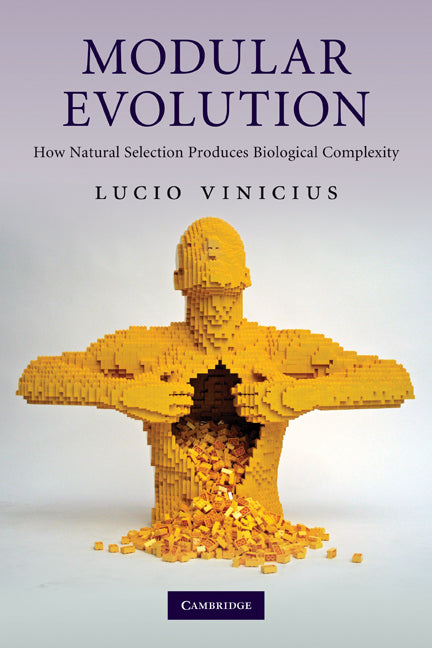Freshly Printed - allow 8 days lead
Couldn't load pickup availability
Modular Evolution
How Natural Selection Produces Biological Complexity
Presents a new theory for the emergence of biological complexity and the evolution of human uniqueness.
Lucio Vinicius (Author)
9780521728775, Cambridge University Press
Paperback, published 15 July 2010
248 pages, 4 b/w illus. 2 tables
22.8 x 15.2 x 1.2 cm, 0.4 kg
'… stimulating food for thought …' The Quarterly Review of Biology
Natural selection is more than the survival of the fittest: it is a force engendering higher biological complexity. Presenting a new explanation for the tendency of life to become more complex through evolution, this book offers an introduction to the key debates in evolutionary theory, including the role of genes and sex in evolution, the adaptive reasons for senescence and death and the origin of neural information. The author argues that biological complexity increased through the process of 'modularity transfer': modular phenotypes (proteins, somatic cells, learned behaviours) evolved into new modular information carriers (regulatory proteins, neural cells, words), giving rise to new information systems and higher levels of biological organisation. Modular Evolution makes sense of the unique place of humans in evolution, both as the pinnacle of biological complexity and inventors of non-biological evolution.
Preface
1. From natural selection to the history of nature
2. From the units of inheritance to the origin of species
3. Multicellularity and the developmental code
4. Life cycle evolution: life and death of the soma
5. Sex and its consequences: the transition that never happened
6. Animal societies: the case of incomplete evolutionary transitions
7. The new 'Chain of Being': hierarchical evolution and biological complexity
References
Index.
Subject Areas: Evolution [PSAJ], Biology, life sciences [PS]


